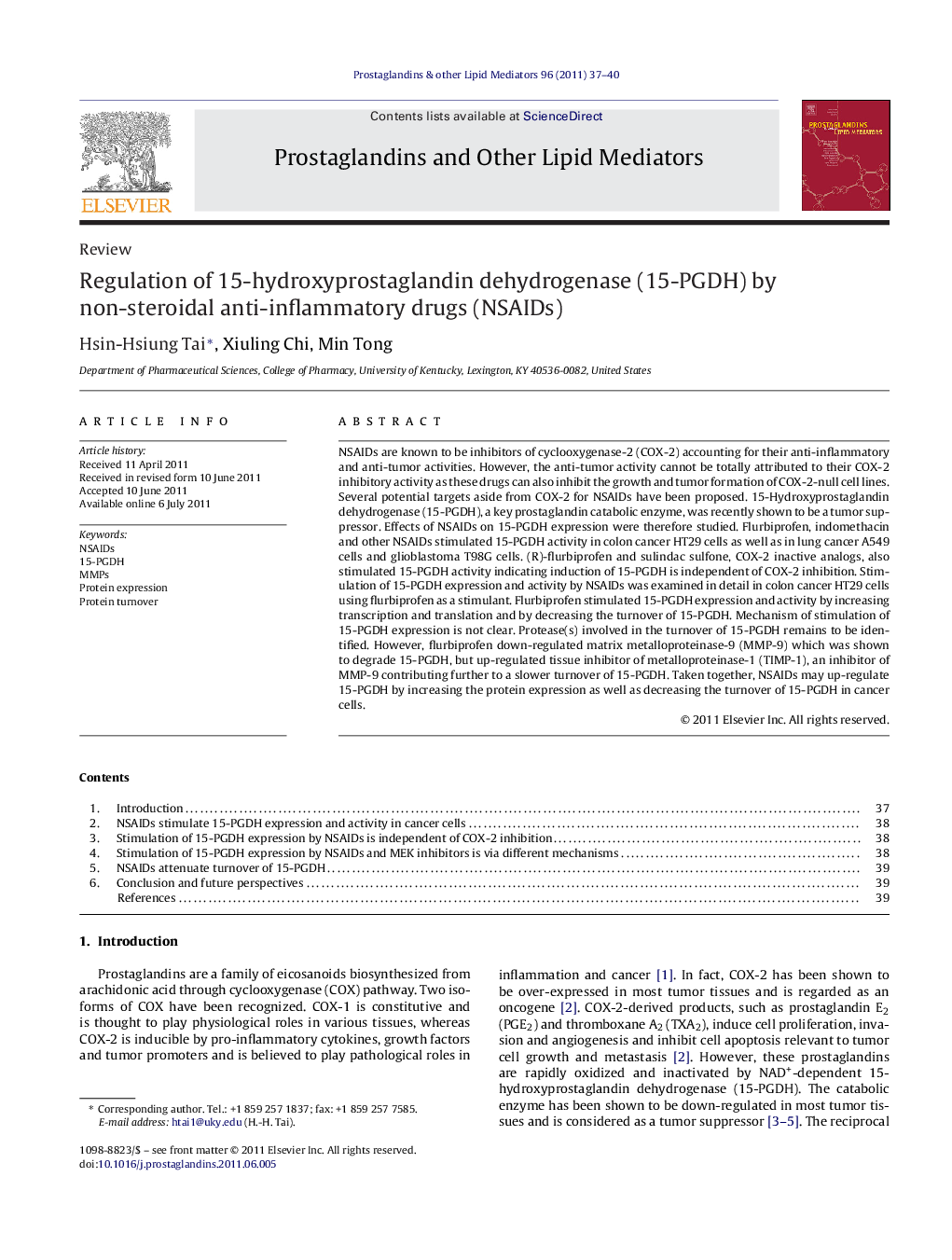| کد مقاله | کد نشریه | سال انتشار | مقاله انگلیسی | نسخه تمام متن |
|---|---|---|---|---|
| 2019697 | 1542229 | 2011 | 4 صفحه PDF | دانلود رایگان |

NSAIDs are known to be inhibitors of cyclooxygenase-2 (COX-2) accounting for their anti-inflammatory and anti-tumor activities. However, the anti-tumor activity cannot be totally attributed to their COX-2 inhibitory activity as these drugs can also inhibit the growth and tumor formation of COX-2-null cell lines. Several potential targets aside from COX-2 for NSAIDs have been proposed. 15-Hydroxyprostaglandin dehydrogenase (15-PGDH), a key prostaglandin catabolic enzyme, was recently shown to be a tumor suppressor. Effects of NSAIDs on 15-PGDH expression were therefore studied. Flurbiprofen, indomethacin and other NSAIDs stimulated 15-PGDH activity in colon cancer HT29 cells as well as in lung cancer A549 cells and glioblastoma T98G cells. (R)-flurbiprofen and sulindac sulfone, COX-2 inactive analogs, also stimulated 15-PGDH activity indicating induction of 15-PGDH is independent of COX-2 inhibition. Stimulation of 15-PGDH expression and activity by NSAIDs was examined in detail in colon cancer HT29 cells using flurbiprofen as a stimulant. Flurbiprofen stimulated 15-PGDH expression and activity by increasing transcription and translation and by decreasing the turnover of 15-PGDH. Mechanism of stimulation of 15-PGDH expression is not clear. Protease(s) involved in the turnover of 15-PGDH remains to be identified. However, flurbiprofen down-regulated matrix metalloproteinase-9 (MMP-9) which was shown to degrade 15-PGDH, but up-regulated tissue inhibitor of metalloproteinase-1 (TIMP-1), an inhibitor of MMP-9 contributing further to a slower turnover of 15-PGDH. Taken together, NSAIDs may up-regulate 15-PGDH by increasing the protein expression as well as decreasing the turnover of 15-PGDH in cancer cells.
► NSAIDs induce the expression and activity of 15-PGDH.
► Stimulation of 15-PGDH expression by NSAIDs is independent of COX-2 inhibition.
► NSAIDs increase the half-life of 15-PGDH by down-regulating proteases.
► NSAIDs up-regulate 15-PGDH by increasing its expression and decreasing its turnover.
Journal: Prostaglandins & Other Lipid Mediators - Volume 96, Issues 1–4, November 2011, Pages 37–40